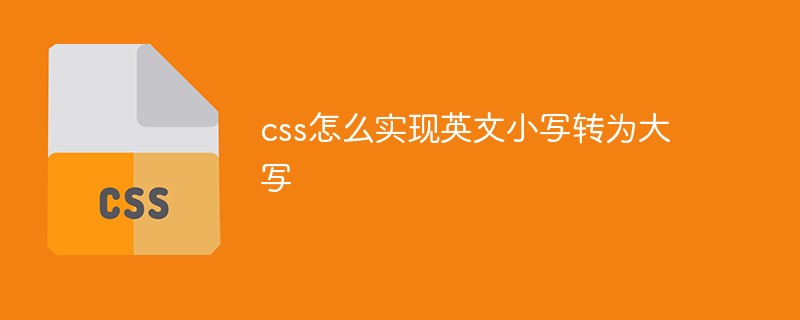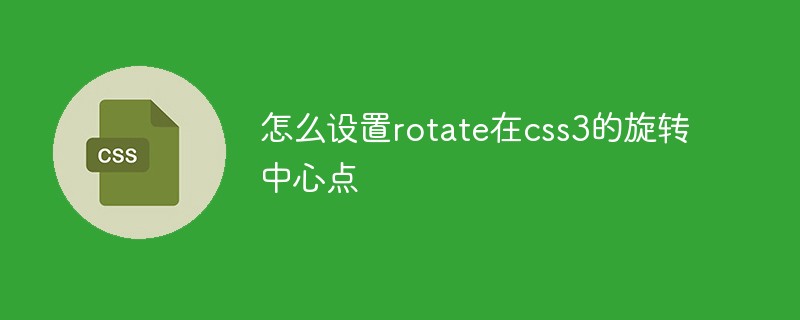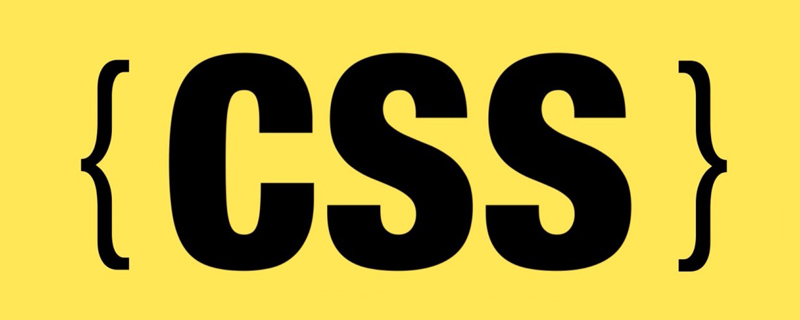 Web Front-end
Web Front-end CSS Tutorial
CSS Tutorial The initial-letter attribute of css implements the drop cap effect (code example)
The initial-letter attribute of css implements the drop cap effect (code example)How to achieve the drop cap effect in css? This article will introduce to you how to achieve the drop cap effect in CSS, and let you know how to use the initial-letter attribute to achieve the drop cap effect. It has certain reference value. Friends in need can refer to it. I hope it will be helpful to you.
First of all, let’s understand how the initial-letter attribute can achieve the drop cap effect!
initial-letter attribute: It is provided in the new module of CSS Inline Layout Module Level 3. Although it can help us achieve the drop cap effect very easily, it can only be applied to the first line of the block container. Literally. It also needs to be used together with the CSS pseudo-element::first-letter. Example:
.intro::first-letter {
color: #bf4055;
initial-letter: 3;
}Rendering:

The initial-letter attribute can set two values:
initial-letter:值1 值2;
Value 1 : Indicates the row height;
Value 2: Indicates the sinking depth.
Here we use a simple code example to see the effect:
.raised-cap::first-letter {
color: #bf4055;
initial-letter: 3 1;
}
.sunken-cap::first-letter {
color: #bf4055;
initial-letter: 3 2;
}
.drop-cap::first-letter {
color: #bf4055;
initial-letter: 3;
} Effect picture:

Isn’t it very It is convenient and simple, but unfortunately there are still many browsers that do not support this attribute. Let’s take a look at which browsers support it (green table supports it):

Although now The browser's support for this attribute is still red, but we can use @supports to do some downgrade processing to determine whether the browser supports it, so as to achieve the drop cap effect:
// 浏览器支持 采用下面的方法
@supports (initial-letter: 5) or (-webkit-initial-letter: 5) {
.intro:nth-of-type(1)::first-letter {
-webkit-initial-letter: 3;
initial-letter: 3;
}
}
// 浏览器不支持 采用 伪元素+浮动的方法
@supports (not (initial-letter: 5)) and (not (-webkit-initial-letter: 5)) {
.intro::first-letter {
color: #bf4055;
font-size: 7.1875rem;
float: left;
line-height: .7;
margin: 17px 2px 0 0;
}
}Rendering:

@supports The core of grammar lies in this sentence: @supports (...) { }, inside the brackets is a CSS expression, if the browser determines that the expression in the brackets is legal, then it will render the CSS expression in the brackets.
The above-mentioned method of pseudo-element floating in css to achieve drop capsYou can read the previous article [How to achieve the drop cap effect in css? Pseudo-element floating effect], there is a detailed introduction in it.
Summary: The above is the entire content of this article, I hope it will be helpful to everyone's study. For more related tutorials, please visit CSS basic video tutorial , CSS3 video tutorial !
Related recommendations:
css3 special effects code collection
The above is the detailed content of The initial-letter attribute of css implements the drop cap effect (code example). For more information, please follow other related articles on the PHP Chinese website!
 css ul标签怎么去掉圆点Apr 25, 2022 pm 05:55 PM
css ul标签怎么去掉圆点Apr 25, 2022 pm 05:55 PM在css中,可用list-style-type属性来去掉ul的圆点标记,语法为“ul{list-style-type:none}”;list-style-type属性可设置列表项标记的类型,当值为“none”可不定义标记,也可去除已有标记。
 css与xml的区别是什么Apr 24, 2022 am 11:21 AM
css与xml的区别是什么Apr 24, 2022 am 11:21 AM区别是:css是层叠样式表单,是将样式信息与网页内容分离的一种标记语言,主要用来设计网页的样式,还可以对网页各元素进行格式化;xml是可扩展标记语言,是一种数据存储语言,用于使用简单的标记描述数据,将文档分成许多部件并对这些部件加以标识。
 css3怎么实现鼠标隐藏效果Apr 27, 2022 pm 05:20 PM
css3怎么实现鼠标隐藏效果Apr 27, 2022 pm 05:20 PM在css中,可以利用cursor属性实现鼠标隐藏效果,该属性用于定义鼠标指针放在一个元素边界范围内时所用的光标形状,当属性值设置为none时,就可以实现鼠标隐藏效果,语法为“元素{cursor:none}”。
 rtl在css是什么意思Apr 24, 2022 am 11:07 AM
rtl在css是什么意思Apr 24, 2022 am 11:07 AM在css中,rtl是“right-to-left”的缩写,是从右往左的意思,指的是内联内容从右往左依次排布,是direction属性的一个属性值;该属性规定了文本的方向和书写方向,语法为“元素{direction:rtl}”。
 css怎么设置i不是斜体Apr 20, 2022 am 10:36 AM
css怎么设置i不是斜体Apr 20, 2022 am 10:36 AM在css中,可以利用“font-style”属性设置i元素不是斜体样式,该属性用于指定文本的字体样式,当属性值设置为“normal”时,会显示元素的标准字体样式,语法为“i元素{font-style:normal}”。
 css怎么实现英文小写转为大写Apr 25, 2022 pm 06:35 PM
css怎么实现英文小写转为大写Apr 25, 2022 pm 06:35 PM转换方法:1、给英文元素添加“text-transform: uppercase;”样式,可将所有的英文字母都变成大写;2、给英文元素添加“text-transform:capitalize;”样式,可将英文文本中每个单词的首字母变为大写。
 怎么设置rotate在css3的旋转中心点Apr 24, 2022 am 10:50 AM
怎么设置rotate在css3的旋转中心点Apr 24, 2022 am 10:50 AM在css3中,可以用“transform-origin”属性设置rotate的旋转中心点,该属性可更改转换元素的位置,第一个参数设置x轴的旋转位置,第二个参数设置y轴旋转位置,语法为“transform-origin:x轴位置 y轴位置”。


Hot AI Tools

Undresser.AI Undress
AI-powered app for creating realistic nude photos

AI Clothes Remover
Online AI tool for removing clothes from photos.

Undress AI Tool
Undress images for free

Clothoff.io
AI clothes remover

AI Hentai Generator
Generate AI Hentai for free.

Hot Article

Hot Tools

Notepad++7.3.1
Easy-to-use and free code editor

Atom editor mac version download
The most popular open source editor

Dreamweaver Mac version
Visual web development tools

Dreamweaver CS6
Visual web development tools

DVWA
Damn Vulnerable Web App (DVWA) is a PHP/MySQL web application that is very vulnerable. Its main goals are to be an aid for security professionals to test their skills and tools in a legal environment, to help web developers better understand the process of securing web applications, and to help teachers/students teach/learn in a classroom environment Web application security. The goal of DVWA is to practice some of the most common web vulnerabilities through a simple and straightforward interface, with varying degrees of difficulty. Please note that this software






